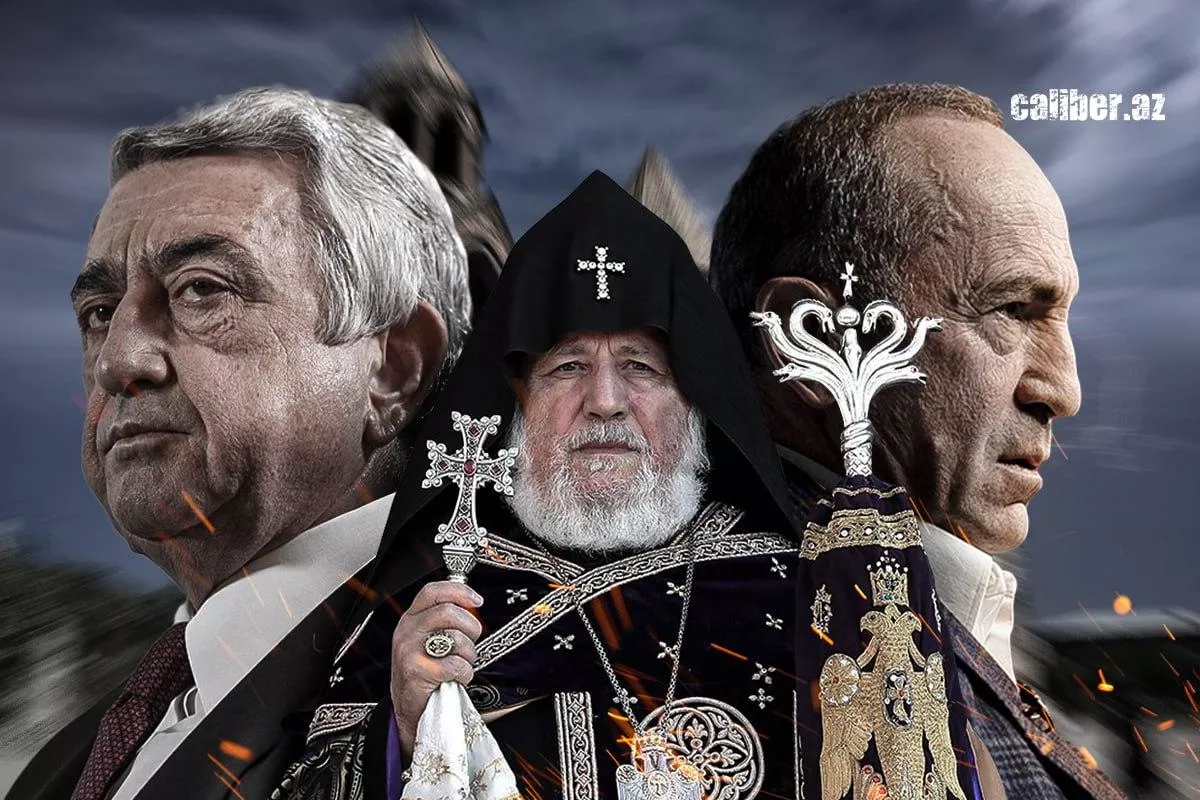Armenia’s political-theological soap opera Pashinyan vs Garegin II
There’s a saying: “Everyone talks about what they know, but the lousy one talks about the bathhouse.” To put it simply, this sums up the recent turmoil in neighbouring Armenia, where the conflict between Prime Minister Nikol Pashinyan and the Catholicos of All Armenians, Garegin II, shows no signs of easing. Both sides are drawing their supporters—and the media outlets they control—into the dispute.
On social media, Pashinyan fired a sharp salvo: “Ktrich Nersisyan, is your hope really resting on a handful of morally corrupt ‘spiritual fathers’? Why have the so-called ‘priest Zare’ and Samvel Khachatryan—both exposed for depravity and known for desecrating not only their families but yours as well—not been defrocked yet? Everyone knows about this. Are you personally unaware?” His posts are quickly echoed by media outlets aligned with him.
In retaliation, media close to the Armenian Church and the Karabakh clan, led by Armenia’s former president Robert Kocharyan, circulated a statement from Armenian Apostolic Church clergyman Hovhannes Torgomyan. He expressed regret that “for over twenty days, because of the Prime Minister’s frivolousness, Armenia’s main agenda has been overshadowed by the scandal over the breaking of the vow of celibacy.”
Torgomyan continued his tirade—clearly aimed at the Prime Minister—lamenting that “the country’s highest leadership is incapable of accepting legal, canonical, or moral arguments regarding the sanctity of an individual’s private life.” In essence, he was accusing Nikol Pashinyan of lacking morality. What followed was a lengthy and obscure monologue, in which he claimed that “private life is not limited to interactions with material or biological objects, but also includes everything a person sees, feels, knows, and experiences as personal history.”
What’s there to say? The argument is tangled and evasive—and it fails to address Pashinyan’s pointed question: does Ktrich Nersisyan, also known as Garegin II, have a son?

If there is no son, then the Prime Minister will go down as a liar. One might assume that the Armenian Apostolic Church and its clergy—serving as the defenders of Garegin II—would simply declare, “Come on, he doesn’t have a son. Cross my heart!” But no—they remain silent, dodging the question entirely and shifting the focus back onto Pashinyan. That’s exactly what Torgomyan did.
“Is the Prime Minister certain,” he asked, “that once confessions begin to surface, his own family won’t be the first to feel the consequences? The real question is whether it’s wise to air one’s own family’s habits and issues in public. As the saying goes, ‘There’s no family without its problems.’ Those problems should be handled with love and patience. And most importantly, the person trying to fix them should not be the cause of them.”
It was a rather heavy-handed hint at the delicate circumstances of Nikol Pashinyan’s family life—particularly his relationship with Anna Hakobyan.
And so, day after day, this spectacle is poured into the ears and onto the heads of Armenian citizens. Life in Armenia now resembles a never-ending recital of The Decameron—though reimagined in a uniquely Armenian edition. One might even suggest that, were Giovanni Boccaccio alive and wandering the streets of Yerevan, he’d be first in line to enrol as a student of both Pashinyan and Garegin II, eager to deepen his understanding of the intricacies of intimate affairs.
Clearly, it’s far too soon to close the book on this drama. Adding yet another twist is the curious development that the Prime Minister’s media allies have begun using their platforms to settle old scores with the Armenian diaspora. In the end, we may see both the Armenian Apostolic Church and Pashinyan revealing far more about themselves than they ever intended. And when that moment comes, it won’t resemble The Decameron anymore—it’ll be a full-blown comedy. Then again, given Armenia’s current realities, a hybrid of the two might be the most fitting genre after all.








